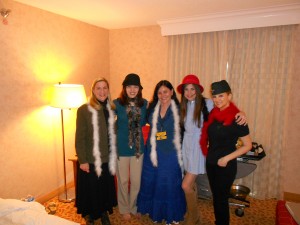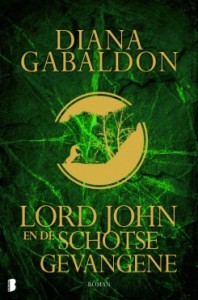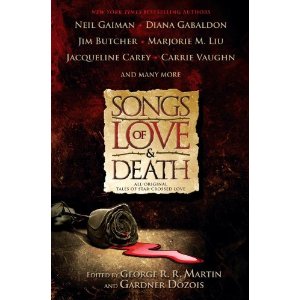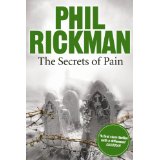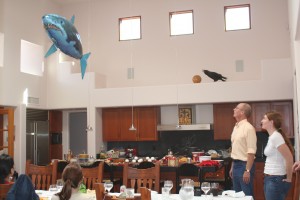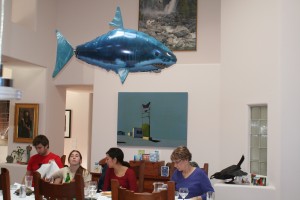The State of the Wicket – February

Now, we’ve been getting a lot of mail, Facebook comments, tweets, and so on, asking about the status of Book Eight, the short stories, etc. So I thought I’d give you a quick run-down of what-all I’ve been doing, where it all is at the moment, a short peek at everything, and—most importantly [g]—when things will be published.
For starters, I’m very pleased to announce that The Scottish Prisoner was released on November 29th, 2011. This release also includes a “teaser” chunk from Written in My Own Heart’s Blood (aka Book Eight, or MOHB (aka “Moby,” which is how I refer to it for convenience. I don’t _think_ it will be white, but it will certainly be a whale of a book [cough]). The teaser includes several scenes about different characters.
Now, I do normally work on multiple projects at once; it keeps me from getting writer’s block, and makes me generally more productive. I also think it’s entertaining to write the occasional short piece (novella or short story) that fills in a missing part of someone’s story and/or provides more depth to the overall tale.
The most recent of these short pieces to be published was “Lord John and the Plague of Zombies,” which was published last October—and which gratified me extremely by recently being nominated for an Edgar Award (for best mystery short story of the year—though it’s not all that short, really…)—in an anthology titled DOWN THESE STRANGE STREETS. The anthology is edited by George RR Martin and Gardner Dozois. http://tinyurl.com/Plague-Zombies
I’m presently writing a short story for another anthology (this one titled DANGEROUS WOMEN)—the story is called “Virgins,” and is about Jamie and his not-yet-brother-in-law Ian, as very young mercenaries in France. I don’t have a pub date for this anthology yet, but expect it will be out sometime later this year. I do post occasional brief snippets from “Virgins” (as well as other works-in-progress) on my Facebook page, at www.facebook.com/AuthorDianaGabaldon.
OK– on to Book Eight, which is probably what most people want to know about.
1) WRITTEN IN MY OWN HEART’S BLOOD is the eighth volume in the main Outlander series. (It’s the sequel to AN ECHO IN THE BONE, where allll the cliffhangers will be picked up. [g])
2) I don’t know yet if WRITTEN IN MY OWN HEART’S BLOOD is the last book in this series!!
3) I am still writing WRITTEN IN MY OWN HEART’S BLOOD!!!
A) I hasten to say that most of the mail I get is wonderful, and Much Appreciated! However, I do get a small amount of idiotic email accusing me of having already finished the book, but “hiding” it from the readers, or keeping it off the market “just to be mean” or (of all insane notions) “to drive the price up.” (It ain’t pork bellies, people; the cover price is the same whenever it comes out, and I don’t set it.) I don’t mean to be impolite here, but…geez, guys.
i) Look. Books are
a) written in order to be read, and
b) published in order to make money.
ii) Publishers do not make money from books that are not in bookstores. Ergo….
iii) Publishers want to sell books as soon as the books are ready.
iv) So do authors. What do you think I live on, while I’m supposedly keeping a book off the market to be mean? And why do you think I’d want to be mean to the people who read my books? Sheesh.
4) Right. Now, I hope to finish writing the book around the end of this year.
OK, pay close attention now….
5) The book will not—repeat not—REPEAT NOT!!!—be published on December 31st, even if I finish writing it on December 30th. Why not? Well, because…
A) Books don’t go directly from the author to the bookstore.
B) Books go from the author to the Editor, who
i) reads the manuscript
ii) discusses the manuscript with the author, and
iii) suggests minor revisions that may improve the book
C) The book goes back to the author, who
i) re-reads the manuscript
ii) considers the editor’s comments, and
iii) makes whatever revisions, emendments, or clarifications seem right.
D) The book goes back to the editor, who
i) reads it again
ii) asks any questions that seem necessary, and
iii) sends it to
E) The copy-editor. This is a person whose thankless job is to
i) read the manuscript one…word…at…a…time
ii) find typos or errors in grammar, punctuation, or continuity (one heck of a job, considering the size not only of the individual books, but of the overall series), and
iii) write queries to the author regarding anything questionable, whereupon
F) The book comes back to the author—yes, again—who
i) re-reads the manuscript
ii) answers the copy-editor’s queries, and
iii) alters anything that the copy-editor has changed that the author disagrees with. After which, the author sends it back to
G) The editor—yes, again!—who
i) re-re-reads it
ii) checks that all the copy-editor’s queries have been answered, and sends it to
H) The Typesetter, who sets the manuscript in type, according to the format laid out by
I) The Book-Designer, who
i) decides on the layout of the pages (margins, gutters, headers or footers, page number placement)
ii) chooses a suitable and attractive typeface
iii) decides on the size of the font
iv) chooses or commissions any incidental artwork (endpapers, maps, dingbats—these are the little gizmos that divide chunks of text, but that aren’t chapter or section headings)
v) Designs chapter and Section headings, with artwork, and consults with the
J) Cover Artist, who (reasonably enough) designs or draws or paints or Photo-Shops the cover art, which is then sent to
K) The Printer, who prints the dust-jackets–which include not only the cover art and the author’s photograph and bio, but also “flap copy,” which may be written by either the editor or the author, but is then usually messed about with by
L) The Marketing Department, whose thankless task is to try to figure out how best to sell a book that can’t reasonably be described in terms of any known genre [g], to which end, they
i) try to provide seductive and appealing cover copy to the book
ii) compose advertisements for the book
iii) decide where such advertisements might be most effective (periodicals, newspapers, book-review sections, radio, TV, Facebook, Web)
iv) try to think up novel and entertaining means of promotion, such as having the author appear on Second Life to do a virtual reading, or sending copies of the book to the armed troops in Iraq, or booking the author to appear on Martha Stewart or Emiril Lagasse’s cooking show to demonstrate recipes for unusual foods mentioned in the book.
vi) kill a pigeon in Times Square and examine the entrails in order to determine the most advantageous publishing date for the book.
M) OK. The manuscript itself comes back from the typesetter, is looked at (again) by the editor, and sent back to the author (again! As my husband says, “to a writer, ‘finished’ is a relative concept.”), who anxiously proof-reads the galleys (these are the typeset sheets of the book; they look just like the printed book’s pages, but are not bound), because this is the very last chance to change anything. Meanwhile
N) A number of copies of the galley-proofs are bound—in very cheap plain covers—and sent to
O) The Reviewers. i.e., the bound galleys are sent (by the marketing people, the editor, and/or the author) to the book editors of all major newspapers and periodicals, and to any specialty publication to whom this book might possibly appeal, in hopes of getting preliminary reviews, from which cover quotes can be culled, and/or drumming up name recognition and excitement prior to publication. Frankly, they don’t always bother with this step with my books, because they are in a rush to get them into the bookstores, and it takes several months’ lead-time to get reviews sufficiently prior to publication that they can be quoted on the cover.
P) With luck, the author finds 99.99% of all errors in the galleys (you’re never going to find all of them; the process is asymptotic), and returns the corrected manuscript (for the last time, [pant, puff, gasp, wheeze]) to the editor, who sends it to
(1. The ebook coding happens somewhere in here.)
Q) The Printer, who prints lots of copies (“the print-run” means how many copies) of the “guts” of the book—the actual inside text. These are then shipped to
R) The Bindery, where the guts are bound into their covers, equipped with dust-jackets, and shipped to
S) The Distributors. There are a number of companies—Ingram, and Baker and Taylor, are the largest, but there are a number of smaller ones—whose business is shipping, distributing, and warehousing books. The publisher also ships directly to
T) The Bookstores, but bookstores can only house a limited number of books. Therefore, they draw on distributors’ warehouses to resupply a title that’s selling briskly, because it takes much longer to order directly from the publisher. And at this point, [sigh]…the book finally reaches
U) You, the reader.
And we do hope you like it when you get it—because we sure-God went to a lot of trouble to make it for you. [g]
6) As it happens, Random House (who publishes my books in the US and Canada) prefers to publish my titles in the Fall quarter (between September 1 and December 31). That’s because this is traditionally the biggest sales period in the year, what with the run-up to Christmas, and therefore all the publishers normally release their “big” titles in the Fall. I’m flattered to be among them.
However, if I do finish the manuscript around the end of this year, Random House (and the UK publisher, Orion, and the German publisher, Blanvalet) _may_ decide to release the book earlier in 2013. They probably won’t set a pub date until I deliver the manuscript—which I _HOPE_ (no guarantees, mind you. Stuff Happens) to finish by the end of 2012.
(The other foreign editions—I think we’re now up to 29 countries, including Israel, Croatia, Russia, Greece, and Korea, which is pretty cool—will be out whenever their respective editors and translators finish their production processes, but I’m afraid I can’t predict that at all.)
So—that’s why the English and German-speaking readers will almost certainly get Written in My Own Heart’s Blood _sometime_ in 2013.
When I have a specific publication date, rest assured—I’ll tell you. (Webmaster’s note: WRITTEN IN MY OWN HEART’S BLOOD has an official publisher release date of June 10, 2014.)
[Amended to add that the photo above is of me sitting down to a well-earned glass of wine at the end of all this...no, really, it's of me at a dinner at Culloden House last summer. Thanks to Judy Lowstuter, who took it!]
Posted on February 01, 2012 8:26 PM
